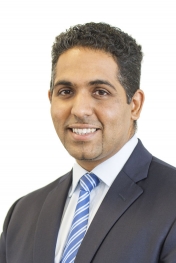To be truly long-term investors, asset owners must understand the ingredients in the financial products they are consuming, according to research from Stanford University’s Global Projects Center.
Today’s complex financial systems have allowed asset managers to obscure the fees and costs they charge to asset owners, argued Global Projects Center Executive Director Ashby Monk and Research Associate Rajiv Sharma. This obfuscation of costs has in turn distorted the economic incentives that drive capitalist markets, leading to an “increasingly short-term and disconnected financial world.”
“Most long-term investors are not exercising their long time horizon effectively, preferring to work through short-term oriented intermediaries,” Monk and Sharma wrote. “It is this short-termism that creates a variety of market failures and contributes to an unhealthy form of capitalist development.”
“It is this short-termism that creates a variety of market failures and contributes to an unhealthy form of capitalist development.”Comparing the financial system to the food industry, the researchers explained that the mass production of investing has led to the development of products that barely resemble the underlying assets.
“Just as in food, a financial product can, quite literally, be ‘packaged’ and ‘wrapped’ and sold to consumers looking to satisfy a specific return need with very little understanding of the ingredients that are meant to deliver those returns,” they wrote.
To solve the problems of short-termism, Monk and Sharma prescribed a Whole Foods approach: Rather than settle for “junk food,” which is cheap and easy in the short run but can be detrimental to long-term health, asset owners should buy organic—or invest in a way that is “sustainable, healthy, and long term.”
Such investments could include allocations to infrastructure or green technology, as well as venture capital investments that back entrepreneurs and new businesses. However, many long-term investors currently don’t participate in these markets because they are “either convinced that some other short-term strategy better meets long-term needs or they simply don’t understand how to access these assets,” Monk and Sharma wrote.
But if fees and costs were made transparent, Monk and Sharma argued those same investors will quickly see that “organic” products are in fact better for them in the long run.
“It is only in recognizing the true ingredients, and their incentives, that long-term investors will finally organize themselves to consume ‘healthier’ products,” they concluded.
Related: America: Land of the Free, Home of the Mediocre Public Fund Investing
 Mitesh Sheth, CEO, RedingtonUK-based consulting firm Redington has tapped a new CEO.
Mitesh Sheth, CEO, RedingtonUK-based consulting firm Redington has tapped a new CEO.